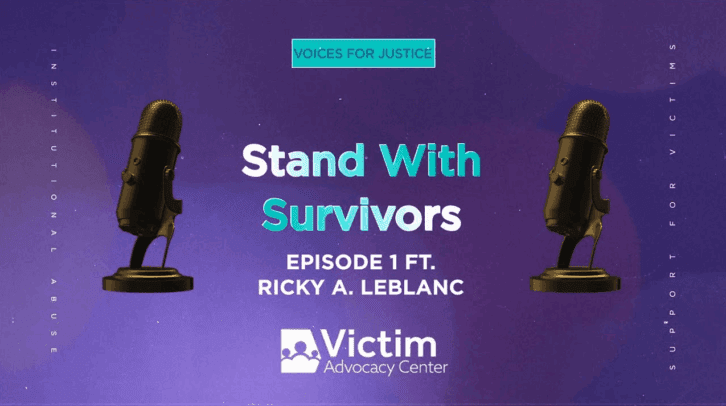Victim & Survivor Resources
Surviving abuse, assault, or trauma is a deeply personal journey that necessitates support and access to resources. If you or someone you know has faced sexual abuse, assault, or child abuse, help is available. Learn about the vital resources available to aid survivors in finding safety, justice, and healing.
Find Out If You Qualify. Get a Free Case Review Now.
Victim & Survivor Resources
Experiencing abuse, assault, or trauma can leave survivors feeling isolated, overwhelmed, and unsure of where to turn. But help is always available.
Whether you’re looking for emotional support, legal guidance, or a safe place to stay, there are compassionate people and programs ready to provide assistance. From emergency hotlines to mental health counseling, legal aid, and housing support, these resources empower survivors to find safety, healing, and justice.
No one should have to navigate recovery alone — support is just a call or click away.
Emergency Assistance and Crisis Support
In moments of crisis, having access to immediate help is crucial. If you or someone you know is in danger, reach out to emergency services or a trusted crisis hotline. Below are some essential emergency contacts for survivors of abuse and assault.
- Emergency Services (911): If you are in immediate danger or require urgent medical attention, dial 911 to receive police, fire, or emergency medical help.
- National Sexual Assault Hotline (1-800-656-4673): Operated by RAINN, this confidential, 24/7 hotline connects survivors to local support services and offers guidance on the next steps.
- National Domestic Violence Hotline (1-800-799-7233): Provides 24/7 confidential support, safety planning, and crisis intervention for individuals experiencing domestic violence or intimate partner abuse.
- Childhelp National Child Abuse Hotline (1-800-422-4453): If you suspect a child is being abused or need to report child abuse, this hotline offers confidential support and resources for families and caregivers.
Mental Health & Emotional Support
Survivors of abuse often experience anxiety, depression, PTSD, and emotional challenges. Accessing mental health support can play a vital role in the healing process. Therapists, support groups, and emotional resources can help survivors rebuild confidence, process trauma, and regain control over their lives.
Therapy & Counseling Services
Therapy provides survivors with coping strategies, emotional validation, and the space to heal from their trauma. Here are some trusted therapy and counseling resources:
- Find a Therapist: Use directories like Psychology Today or GoodTherapy to locate licensed trauma-informed therapists.
- Community Health Centers: Local health centers often provide free or low-cost mental health services for survivors of assault and abuse.
- Online Therapy: Platforms like BetterHelp and Talkspace offer online therapy sessions with licensed counselors, providing a more accessible and private option for survivors.
Peer Support Groups
Survivors often find solace in speaking with others who have had similar experiences. Support groups provide community, understanding, and empowerment.
- RAINN Support Groups: RAINN offers online support groups where survivors can connect with peers and share their experiences in a safe, moderated environment.
- Local Advocacy Centers: Contact local sexual assault and domestic violence resource centers to learn about in-person support groups near you.
- 12-Step Programs: Groups like Adult Survivors of Child Abuse (ASCA) offer a structured, peer-supported recovery process for adult survivors of child abuse.
Legal Resources & Advocacy
Seeking legal support is often a critical step in the recovery process. Legal advocacy can provide survivors with the knowledge and tools to protect their rights, obtain justice, and ensure their safety. From restraining orders and criminal charges to civil lawsuits for compensation, the legal system offers pathways for protection and justice.
Legal Advocacy & Support
- National Crime Victim Law Institute (NCVLI): Offers support for survivors of crime, including legal advocacy and assistance with navigating the justice system.
- Legal Aid Services: At no out-of-pocket cost, our team can help victims and their families understand their legal options and pursue compensation from civil claims if they qualify.
- Victim Witness Advocates: Many district attorneys’ offices have victim witness advocates who can guide survivors through the legal process and provide emotional support.
How to Report Abuse
- Report the incident to local police or law enforcement by calling 911 or the non-emergency police line.
- Contact your school’s Title IX Coordinator if the incident occurred on a college or university campus.
- File a report with your employer’s HR department if the abuse occurred at work.
Medical Assistance & Forensic Exams
Following an assault, survivors may need medical care for physical injuries or to collect forensic evidence. Medical assistance can help survivors access testing, treatment, and evidence collection that can be used in legal proceedings.
- Sexual Assault Nurse Examiners (SANE): Hospitals have trained SANE nurses who perform forensic exams (rape kits) to document injuries and collect evidence.
- Urgent Care Clinics: Community clinics provide medical exams, STD testing, and follow-up care for survivors.
Housing & Financial Assistance
Survivors sometimes need financial support to leave unsafe environments, relocate, or access essential services. Housing and financial assistance programs offer survivors a path to stability and security.
- Emergency Shelters: Contact the National Domestic Violence Hotline to locate local shelters for survivors of domestic violence.
- Housing Assistance: Apply for government housing assistance through Section 8 or local housing authorities.
- Crime Victims Compensation: Many states offer financial compensation to survivors to cover medical bills, lost wages, and other expenses related to the crime.
Our team may be able to help survivors of abuse or assault pursue compensation from civil litigation as well.
Victim & Survivor Rights
Every survivor has rights that protect their dignity, privacy, and access to justice. These rights help ensure that survivors have the ability to report abuse, access compensation, and maintain confidentiality during legal proceedings.
- Right to Privacy: Your identity may be protected in legal proceedings, particularly in cases involving sexual assault or child abuse.
- Right to Compensation: You may be eligible for financial compensation from a state’s crime victim compensation fund as well as from civil lawsuits against the perpetrator.
- Right to Report: You have the right to report abuse to law enforcement, employers, and educational institutions under Title IX and similar regulations.
The Stand With Survivors Podcast
At Victim Advocacy Center, we’re proud to stand with survivors and push the conversation forward on a number of pressing issues. Our team hosts a podcast to discuss sexual assault cases, what’s being done about them, and how survivors can get the support they deserve.
Watch our first episode when we sat down with Sokolove Law Managing Attorney Ricky A. LeBlanc:
In this impactful episode of Stand With Survivors, we talk with Ricky LeBlanc from Sokoloff Law, a lawyer who specializes in helping survivors of sexual and institutional abuse reclaim their power through the legal system.
Duration: 10 min 07 sec
How to Take Action
Recovery takes time, but you don’t have to face it alone. If you need immediate help, call the National Sexual Assault Hotline at 1-800-656-4673 or the Childhelp National Child Abuse Hotline at 1-800-422-4453. Compassionate professionals are available 24/7 to provide support, guidance, and next steps.
Whether you seek medical attention, therapy, legal advice, or emergency housing, you have the right to live in safety and dignity. Take one step at a time and reach out for help — because you deserve to be supported and heard.

Written by: Victim Advocacy Center
A trusted resource for survivors of abuse, neglect, and violence. Our mission is to provide education, empower individuals with knowledge, and connect victims to the legal resources they need to reclaim their lives and pursue justice. We are dedicated to standing by survivors at every step, offering guidance, support, and a pathway to hope.
